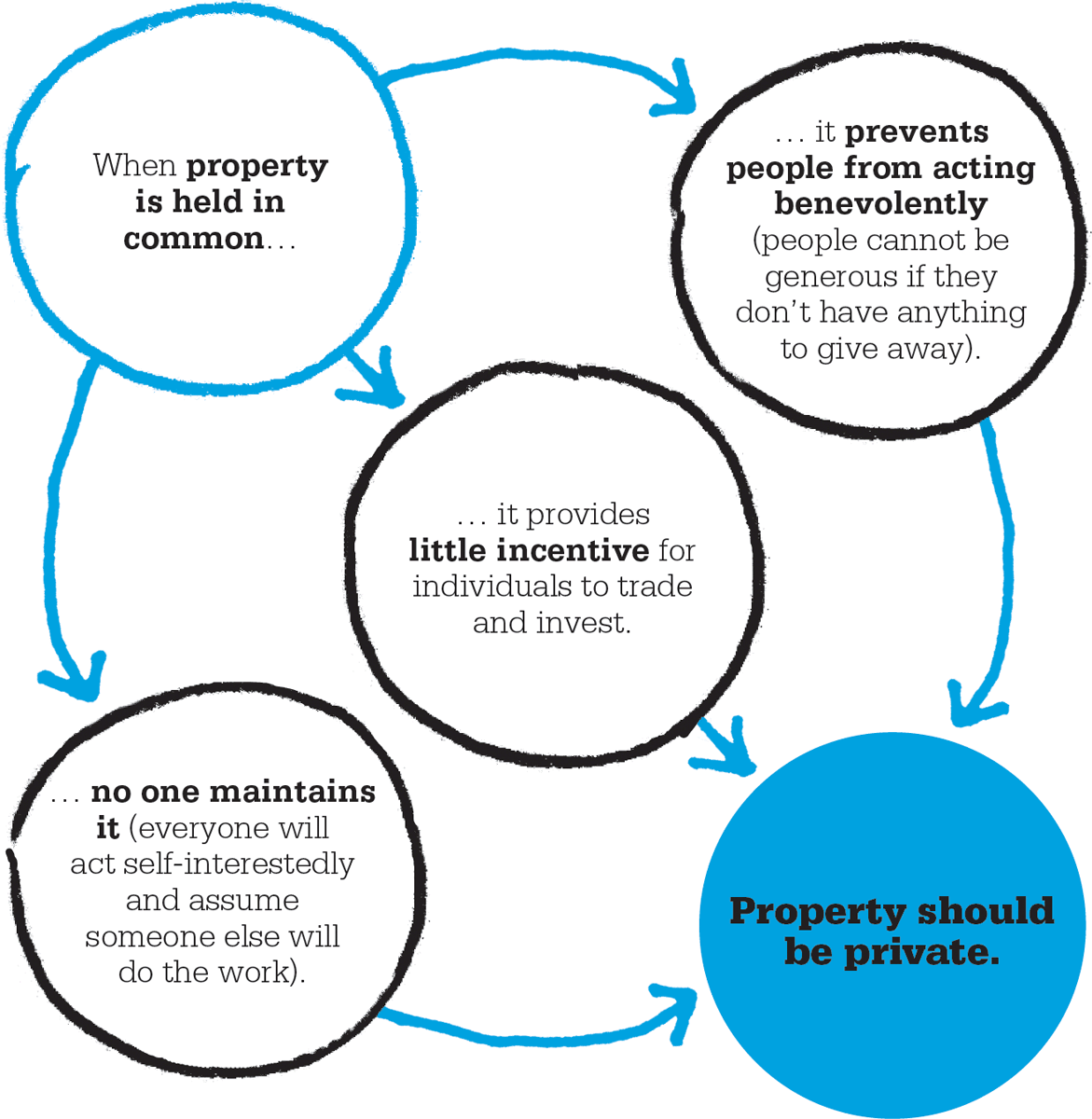

Society and the economy
Aristotle (384–322 BCE)
423–347 BCE Plato argues in The Republic that rulers should hold property collectively for the common good.
1–250 CE In classical Roman law the sum of rights and powers a person has over a thing is called dominium.
1265–74 Thomas Aquinas argues that owning property is natural and good, but private property is less important than the public good.
1689 John Locke states that what you create by your own labor is yours by right.
1848 Karl Marx writes the Communist Manifesto, advocating the complete abolition of private property.
We learn about ownership and personal property from our earliest childhood tussles over toys. This concept is often taken for granted, yet there is nothing inevitable about the idea. Private property is fundamental to capitalism. Karl Marx noted that the wealth generated by capitalism presents societies with “an immense collection of commodities” that are privately owned and may be traded for profit. Businesses are also privately owned and operated for profit in a free market. Without the idea of private property, there is no potential for personal gain—there is no reason even to enter the market. There is, in effect, no market.

“Property” encompasses a wide range of things, from material goods to intellectual property (such as patents or written text). It has entered realms that even free market economists would not defend, such as slavery—where people were viewed as commodities.
Historically, material property has been organized three different ways. First, everything can be held in common and used by everyone as they wish, on the basis of mutual trust and custom. This was the case in tribal economies, and it is still practiced by the Huaorani people of the Amazon. Second, property can be held and used collectively; this is the essence of the communist system. Third, property can be held in private, with each person free to do with it as they choose. This is the concept at the heart of capitalism.
Modern economists tend to justify private property on pragmatic grounds, arguing that the market simply can’t operate without some division of resources. Earlier thinkers made more of a moral case for private property. The Greek philosopher Aristotle argued that “property should be private.” He pointed out that when property is held in common, no one takes responsibility to maintain and improve it. Moreover, people can only become generous if they have something to give away.
"It is clearly better that property should be private, but the use of it common; and the special business of the legislator is to create in men this benevolent disposition."
Aristotle

Defending private ownership is important in capitalist countries. This house in Warsaw, Poland, is the most secure home ever built; it turns into a steel cube at the touch of a button.
In the 17th century all land and housing in Europe was effectively owned by monarchs. The English philosopher John Locke (1632–1704), however, spoke out for individual rights, saying that as God gave us dominion over our own bodies, we also have dominion over the things we make. The German philosopher Immanuel Kant (1724–1804) later argued that private property is a legitimate expression of the self.
Another German philosopher, however, rejected the notion of private property entirely. Karl Marx insisted that the concept of private property is nothing but a device by which the capitalist expropriates the labor of the proletarian, keeps him in slavery, and excludes him. The proletariat is effectively locked out of the select group that controls all wealth and power.
In every modern society some things are shared as collective property, such as streets and parks. Others, such as cars, are private property. Property rights, or legal ownership, normally confers on the owner exclusive rights over a particular resource, but this is not always the case. The owner of a house in a historic district, for instance, might not be allowed to knock it down and replace it with a skyscraper or a factory, or even change the use of the current building. The governments of every country in the world reserve the right to override private ownership when this is deemed necessary, for reasons varying from the needs of infrastructure to national safety issues. Even in the US, a staunchly capitalist nation, the government may force a property owner to relinquish his or her rights. However, the 14th amendment to the Constitution softens this blow by stating that the owner must be compensated with the market price.